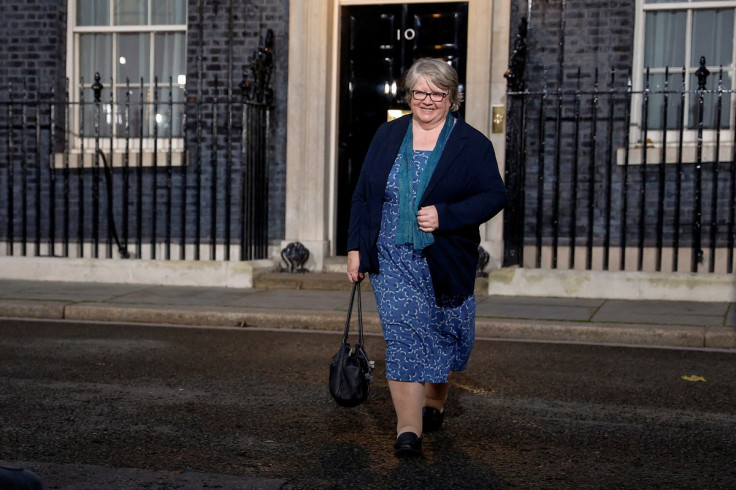Britain and France launch Global Biodiversity Credits Roadmap
Launched at the Summit for a New Global Financing Pact, the new biodiversity credits initiative aims to mobilise finance to support Earth's natural environments.

Taking action to prevent and mitigate the consequences of climate change is a key priority for many nations in the global international community. This year's UN Climate Change Conference (COP28) is scheduled to be held from the 30th of November to the 12th of December in Dubai.
Last year, COP27 took place in Sharm el-Sheikh, an Egyptian coastal city. The attendees of COP27 agreed to set up a loss and damage fund intended to aid developing countries that are vulnerable to the effects of climate change. For example, droughts, floods, and rising sea levels. Moreover, the costs developing countries face in order to adapt to climate change are eye-watering. The UN points to a range of $160 to $340 billion per year by 2030.
In an effort to address the challenges faced by the developing world, Britain has recently committed to a funding scheme that supports the climate resilience of 12 countries in the Caribbean and Africa, areas of the world particularly vulnerable to droughts, hurricanes, floods, cyclones, landslides and earthquakes.
However, whilst it is widely understood that climate change is an important issue on which the international community must act to protect human civilisation around the globe, it is only recently that action to address biodiversity loss has kick-started.
National Geographic define biodiversity as "the variety of living species on Earth, including plants, animals, bacteria, and fungi". It is estimated by scientists that there are approximately 8.7 million species of plants and animals living here on Earth. Amazingly, we humans have only identified 1.2 million species, meaning the vast majority of Earth's biodiversity is largely unknown to us.
Moreover, biodiversity is important for the health of ecosystems and for sustaining human life. For example, humans depend on biodiversity for food, medicine, energy, clean air, and water. Of particular importance are Earth's oceans, a point highlighted last year by the UN Secretary-General Antonio Guterres.
Therefore, recognising the importance of biodiversity, the international community have come together to cooperate on measures to support ecosystems. Held in Montreal, Canada, back in December 2022, the United Nations Biodiversity Conference (COP15) included 188 governments from around the world. Whilst COP15 was hosted by Canada, China chaired the event.
The summit saw the drafting of the Kunming-Montreal Global Biodiversity Framework, which establishes four goals and 23 targets for the international community to work towards by 2030. Crucially, the vision of the framework is to achieve "a world living in harmony with nature" by 2050, with "urgent action" taken "to halt and reverse biodiversity loss", allowing humanity and the planet to benefit from nature's recovery.
On page eight, highlighting the need to divert financial resources to the poorest countries, the framework refers to an annual "biodiversity finance gap" amounting to 700 billion dollars. Specifically, target 19 of the framework states the objective of bolstering the financial resources used to protect and develop biodiversity by "mobilising at least 200 billion United States dollars per year" by 2030.
According to Environment Secretary Thérèse Coffey, Britain played a key role in supporting the agreement around the framework. Moreover, Coffey has stated that Britain "will continue to be a world leader in supporting efforts to halt the decline in nature, protect wildlife and restore the natural world".
Therefore, in order to support the implementation of the global biodiversity framework, the British and French governments have recently come together to "mobilise global nature finance" through the creation of a new Global Biodiversity Credits Roadmap. Launched by the Environment Secretary and French State Minister Bérangère Couillar on the 22nd of June at the Summit for a New Global Financing Pact, the Roadmap establishes "a plan for scaling up global efforts to support companies buying credits that contribute to the recovery of nature in a credible way".
Held in Paris from the 22nd to the 23rd of June, the purpose of the summit has been to work towards the creation of a more inclusive international financial system. The President of France Emmanuel Macron has stated that "the fight against poverty, the decarbonisation of our economy in order to achieve carbon neutrality by 2050, and the protection of biodiversity, are closely intertwined". Moreover, the international community needs to come together to establish how best to address these issues, particularly at the level of investment and finance.
Biodiversity credits allow both individuals and companies to invest in economic activity which creates "richer biodiversity", restoring natural environments as a result. Coffey has stated the importance of "mobilising finance" in "meeting the global goals set out in the COP15 agreement." She also highlighted the role of the new Roadmap on Biodiversity Credits in directing finance from the private sector to initiatives which protect natural environments.
Furthermore, a new Advisory Panel has also been announced by Britain and France. Jointly chairing the panel will be Britain's Dame Amelia Fawcett and France's Sylvie Goulard. In order to bring about progressive change, the panel will source expert advice globally in order "to form and guide diverse working groups".
© Copyright IBTimes 2025. All rights reserved.





















